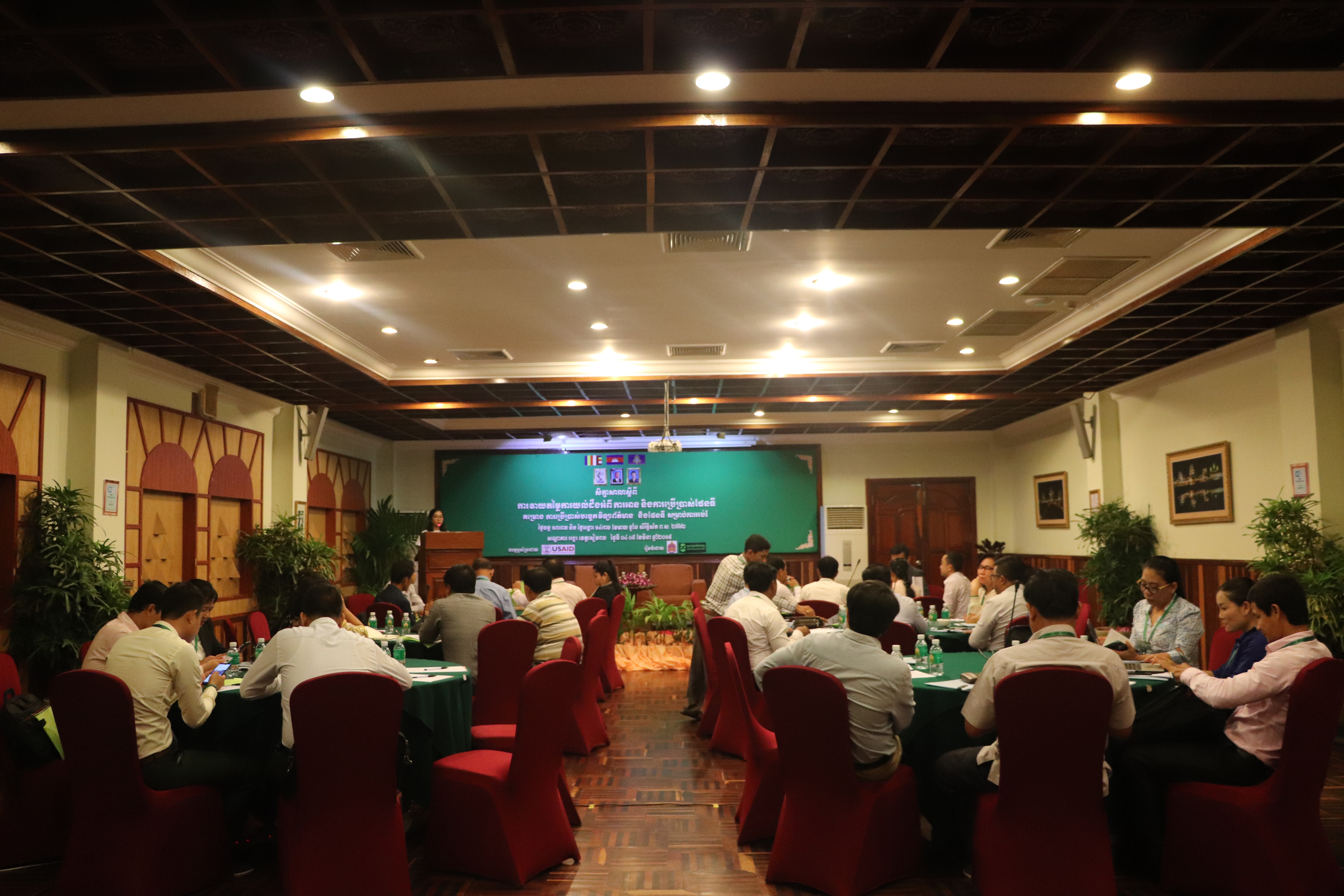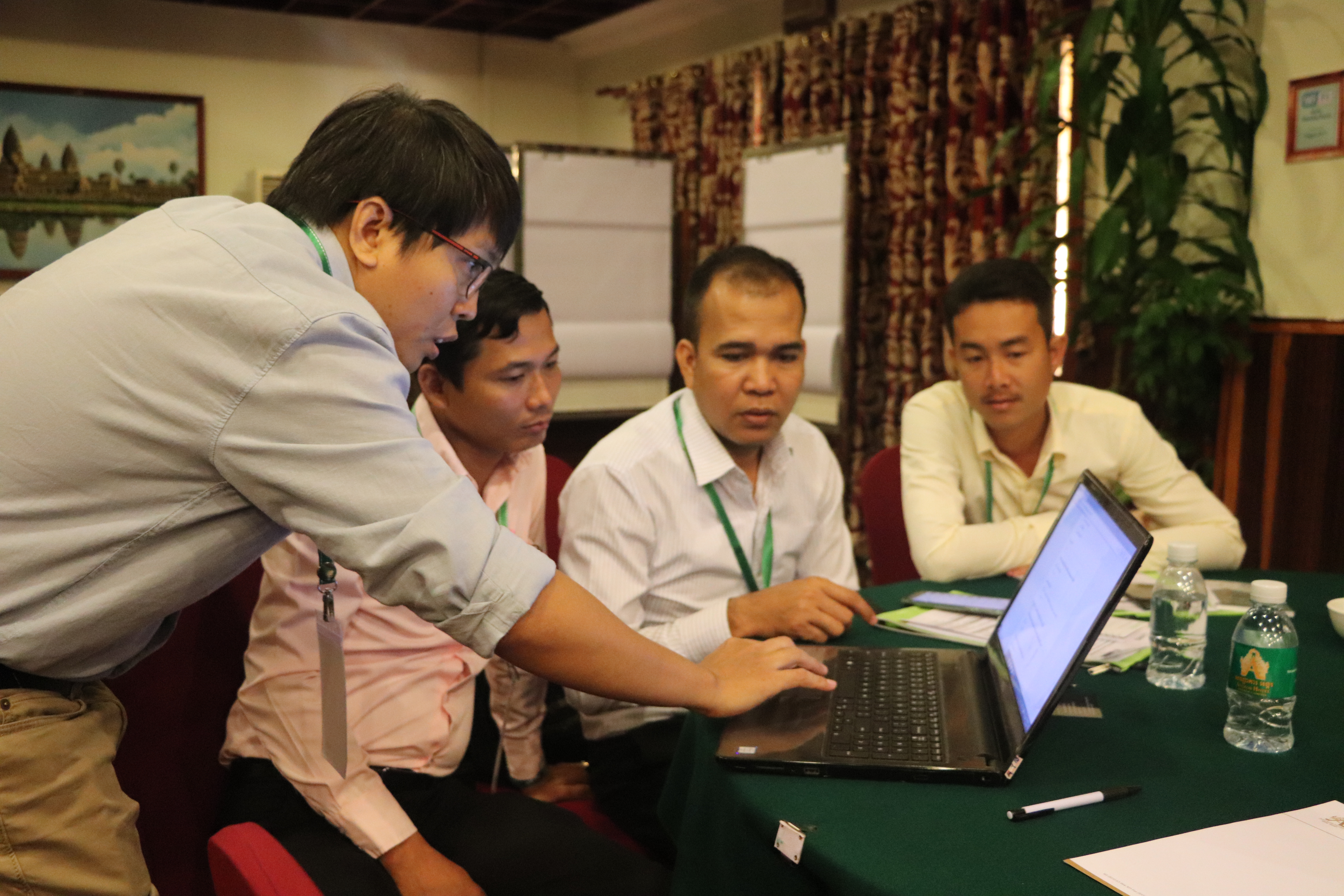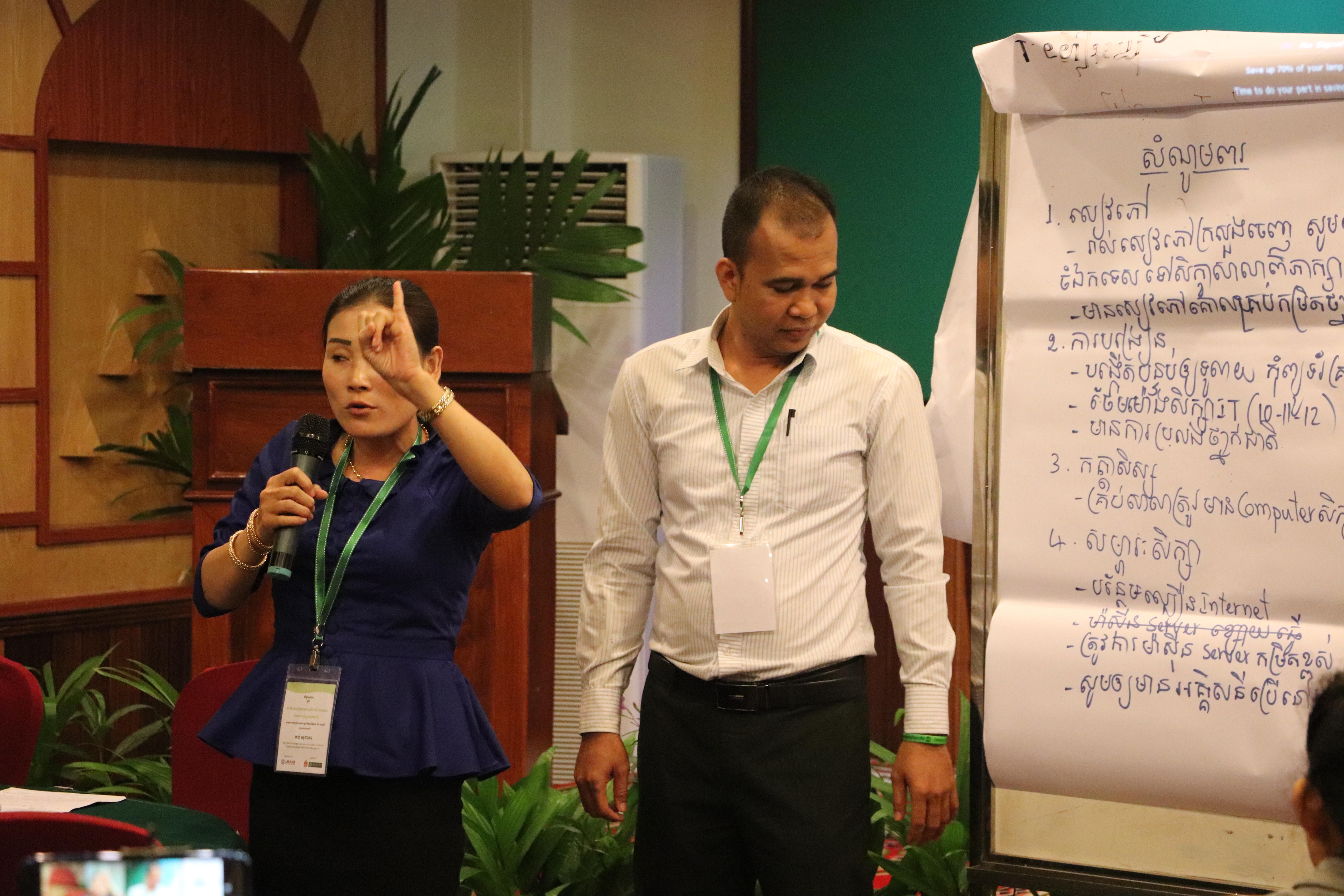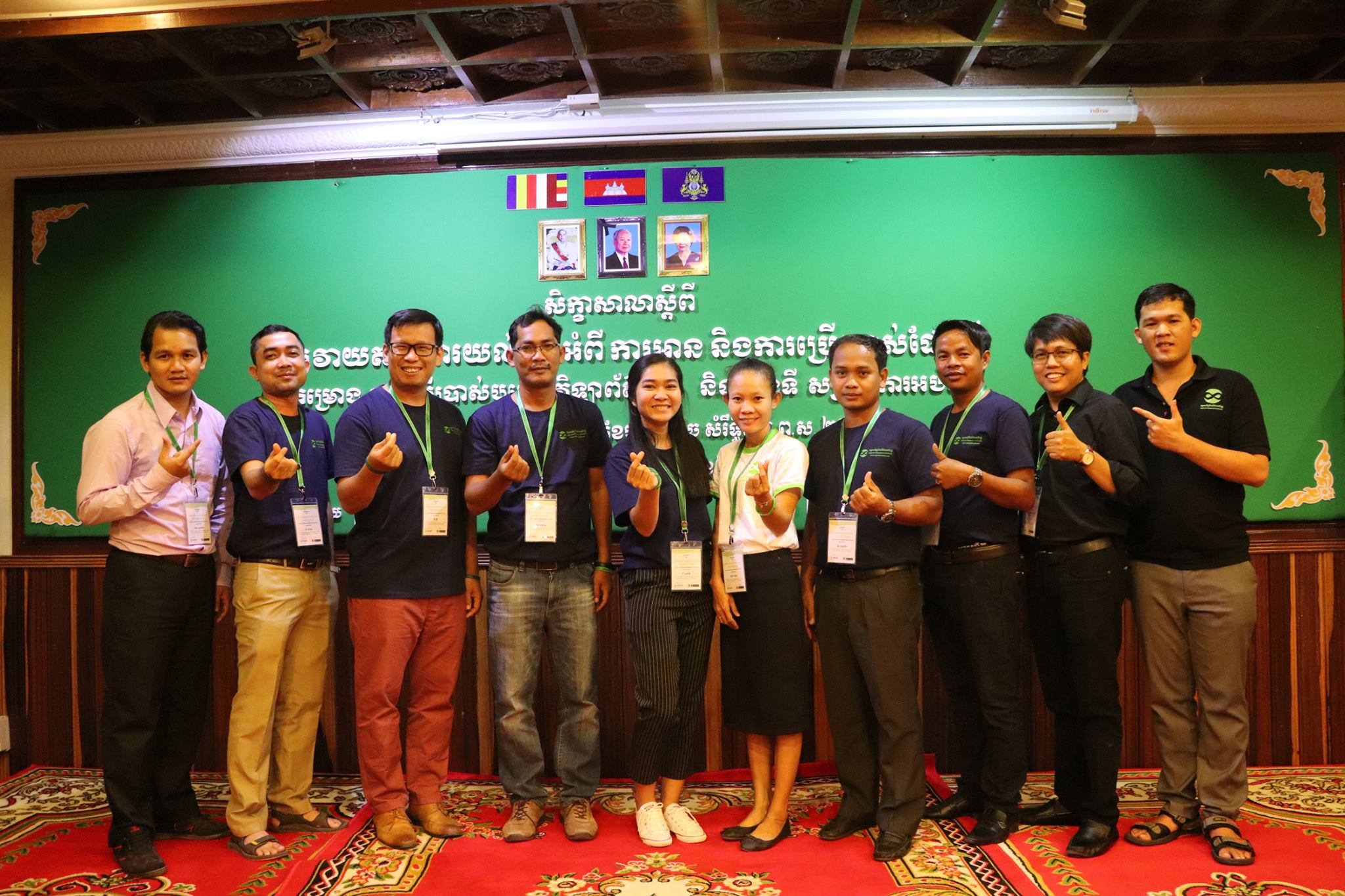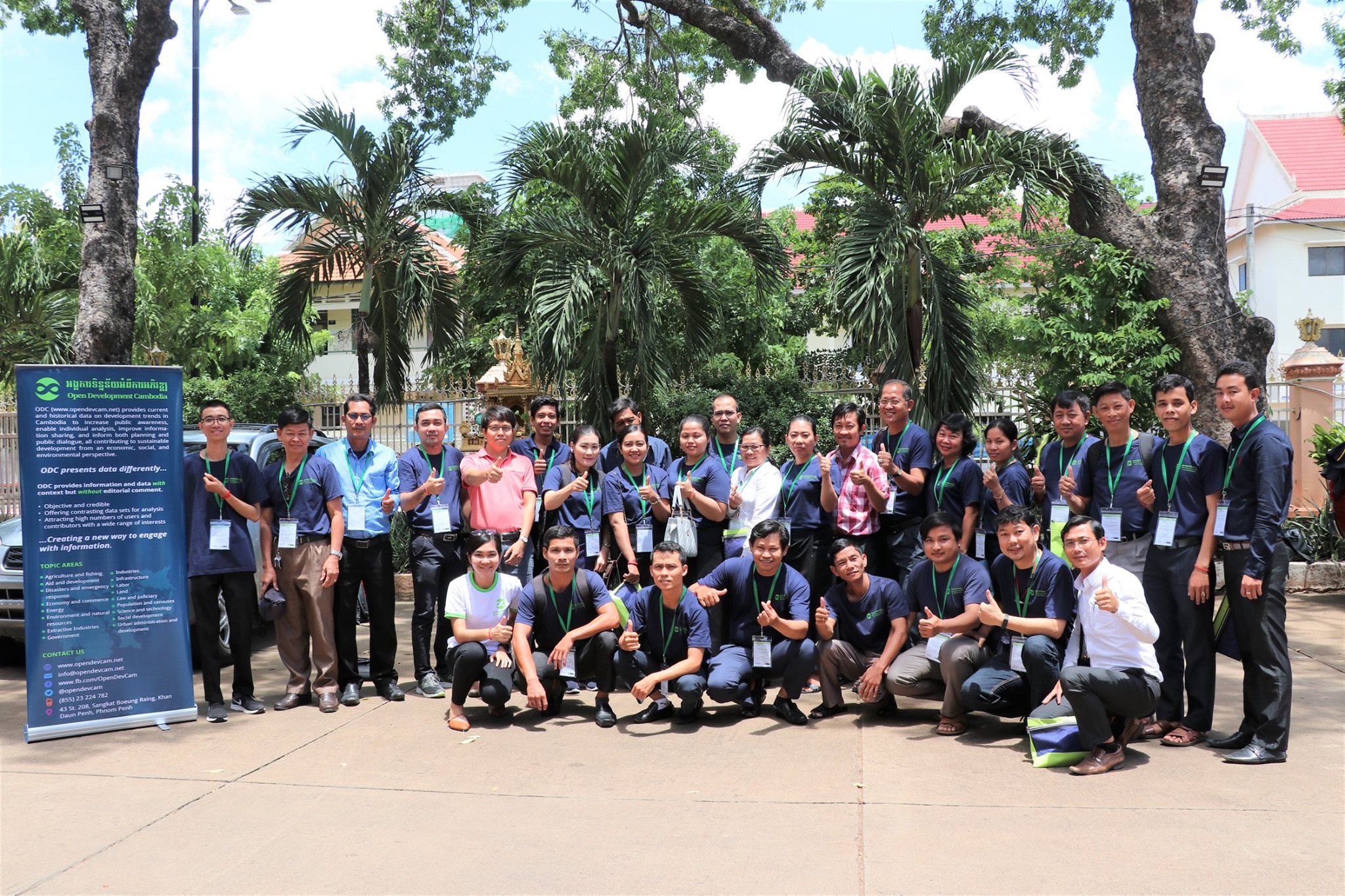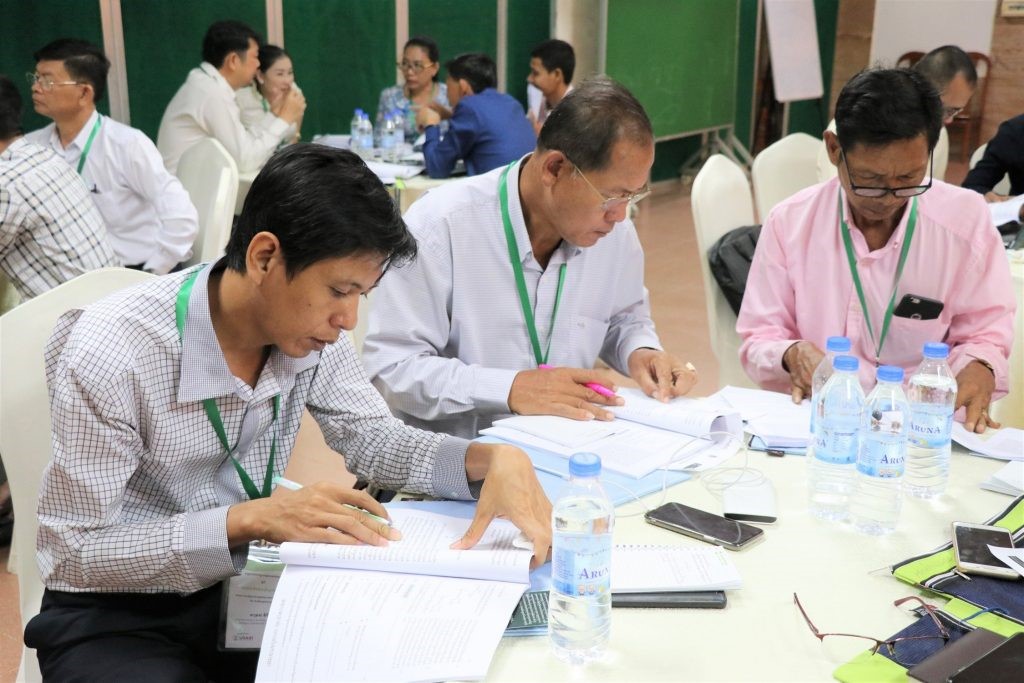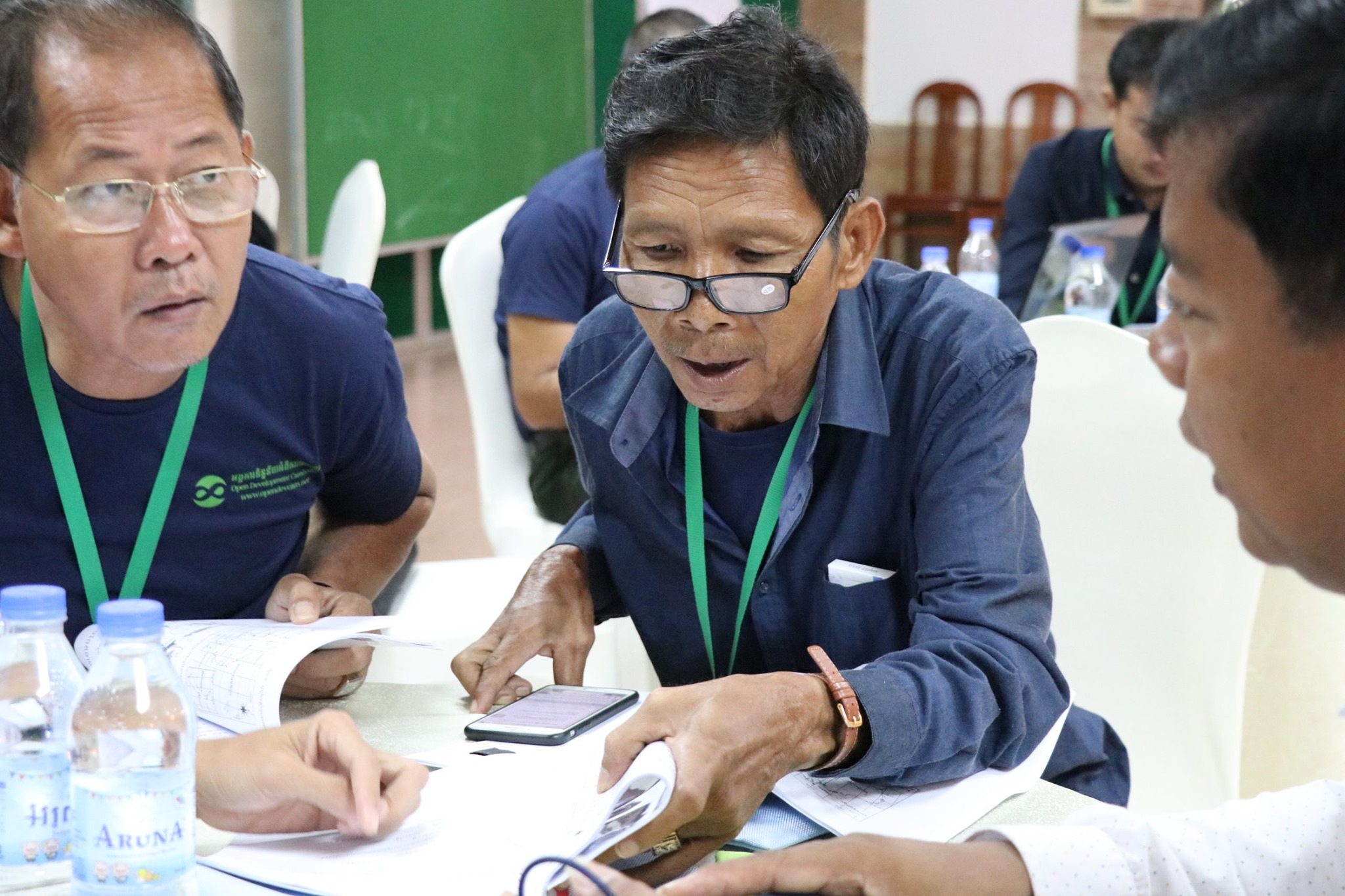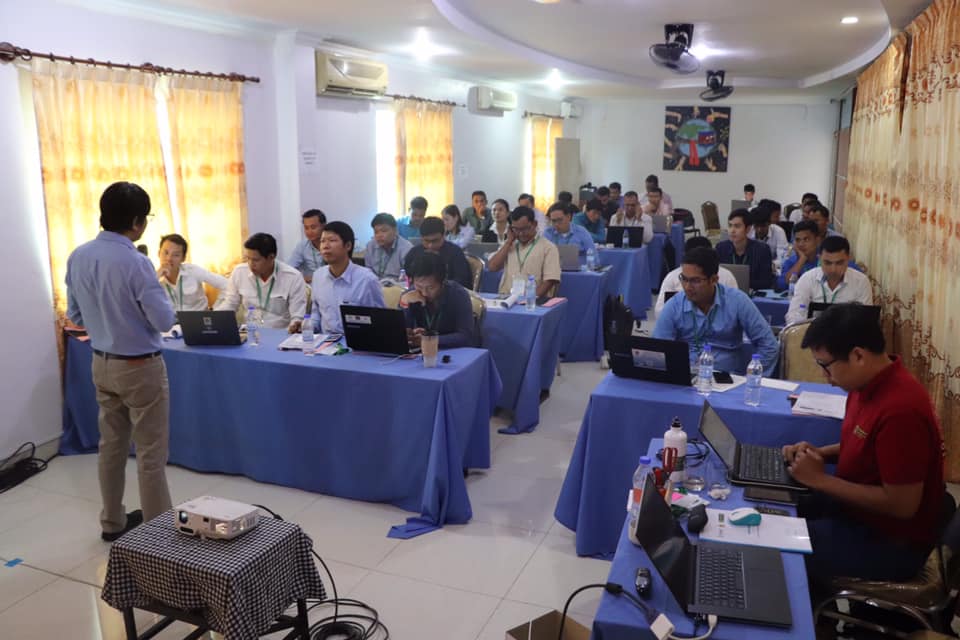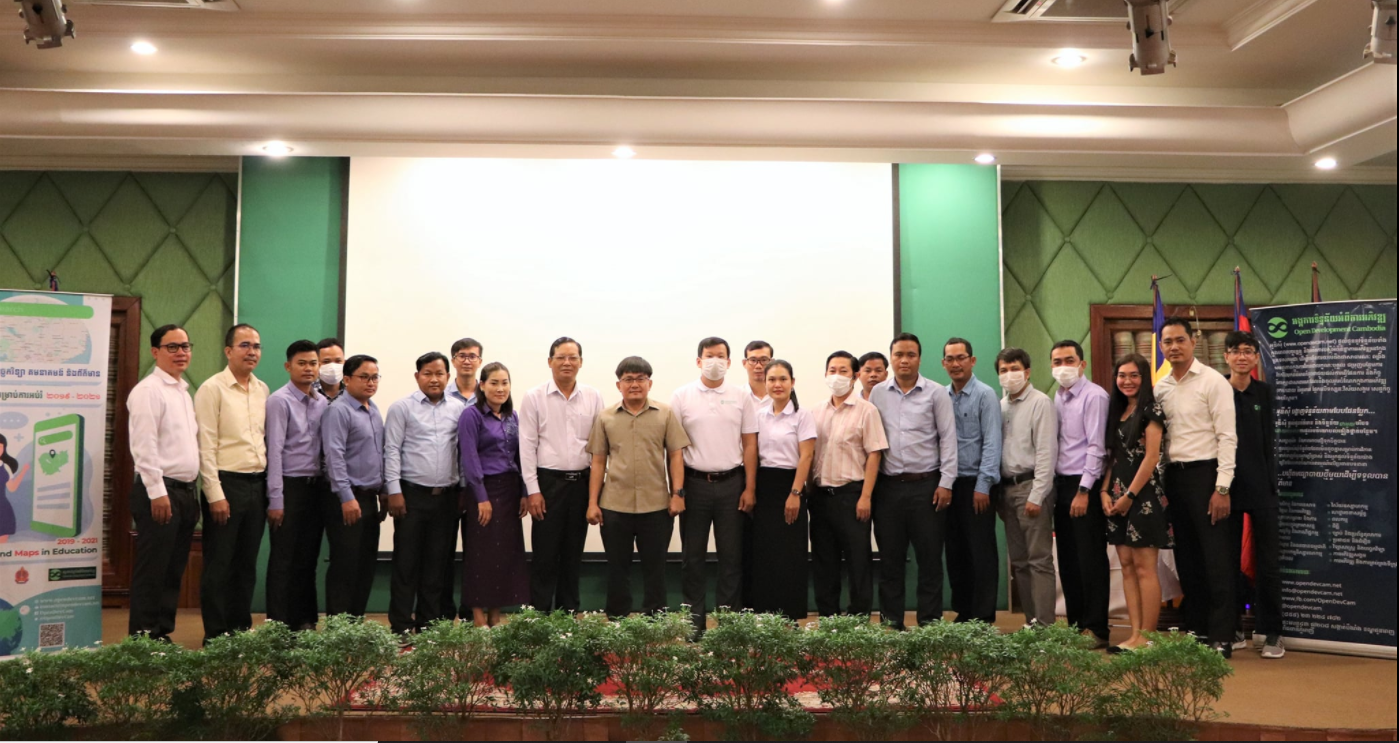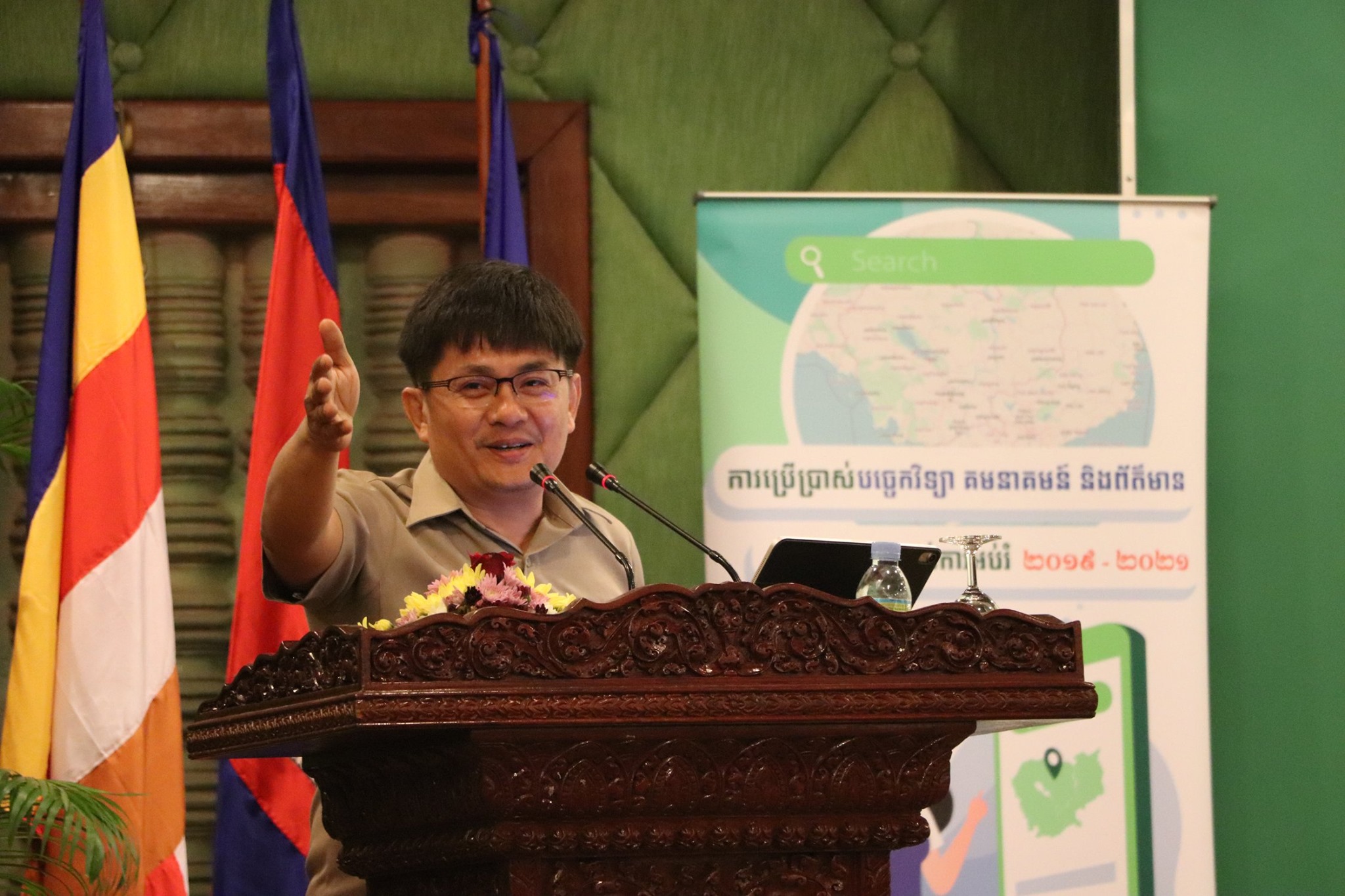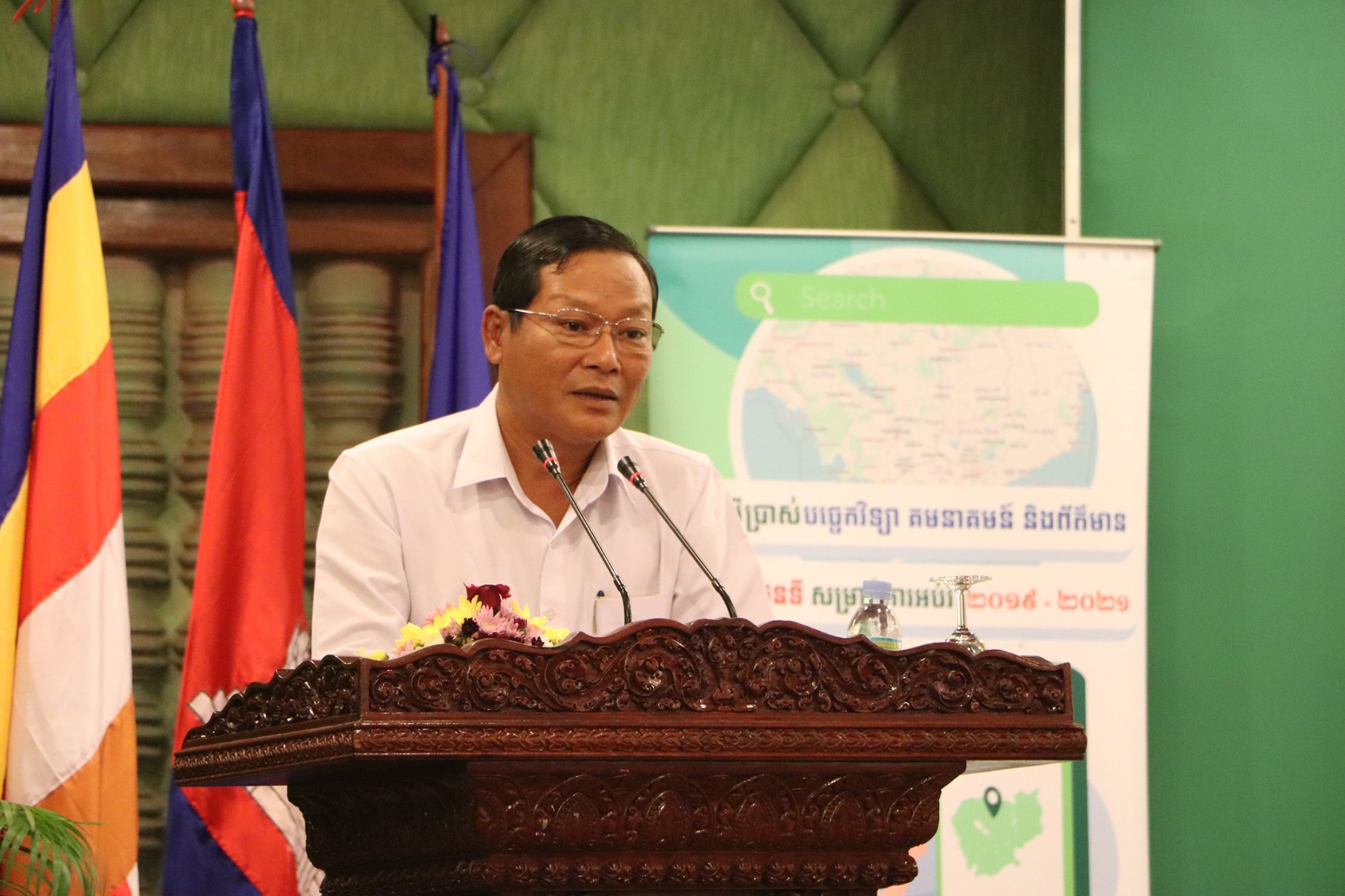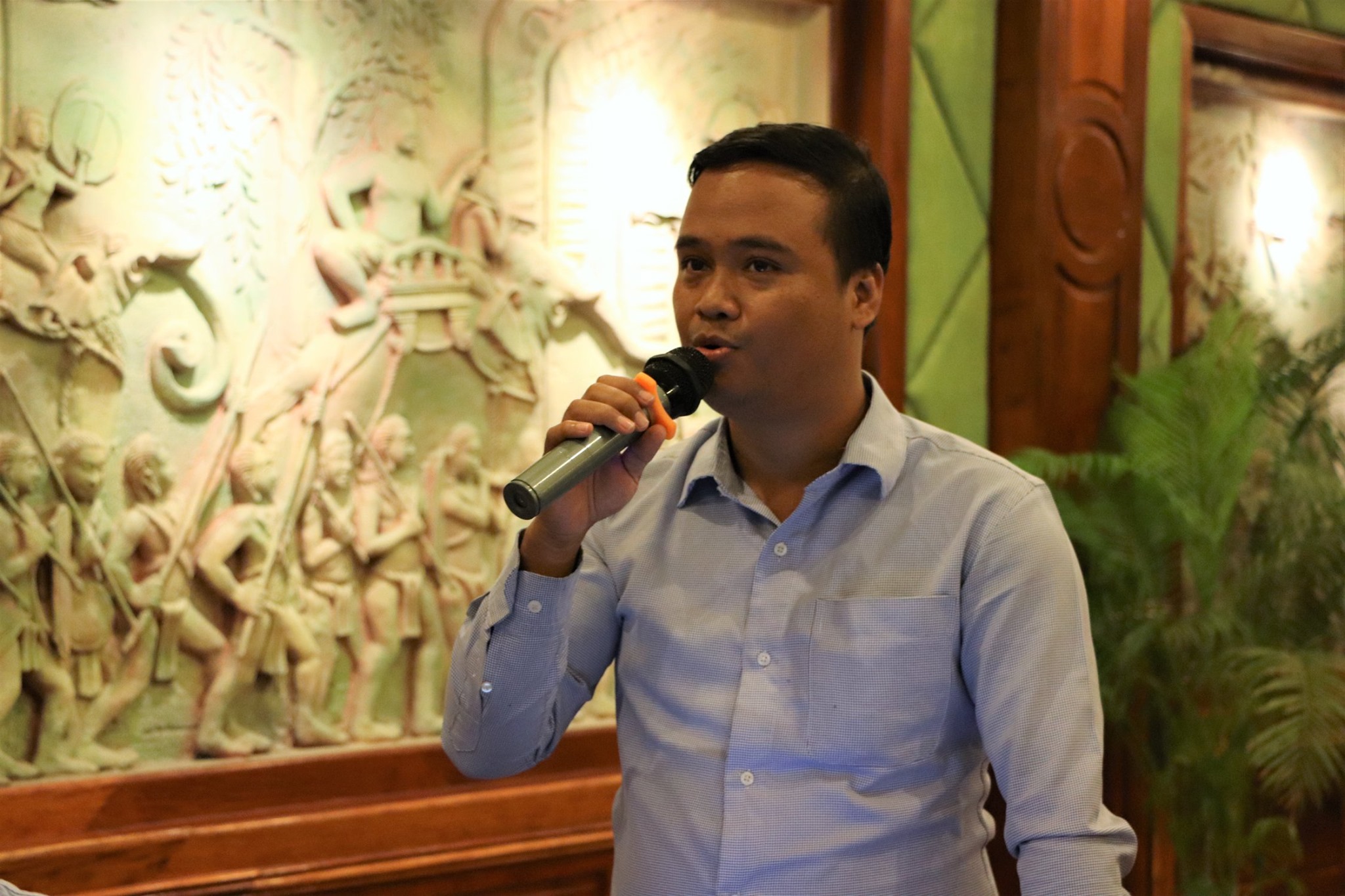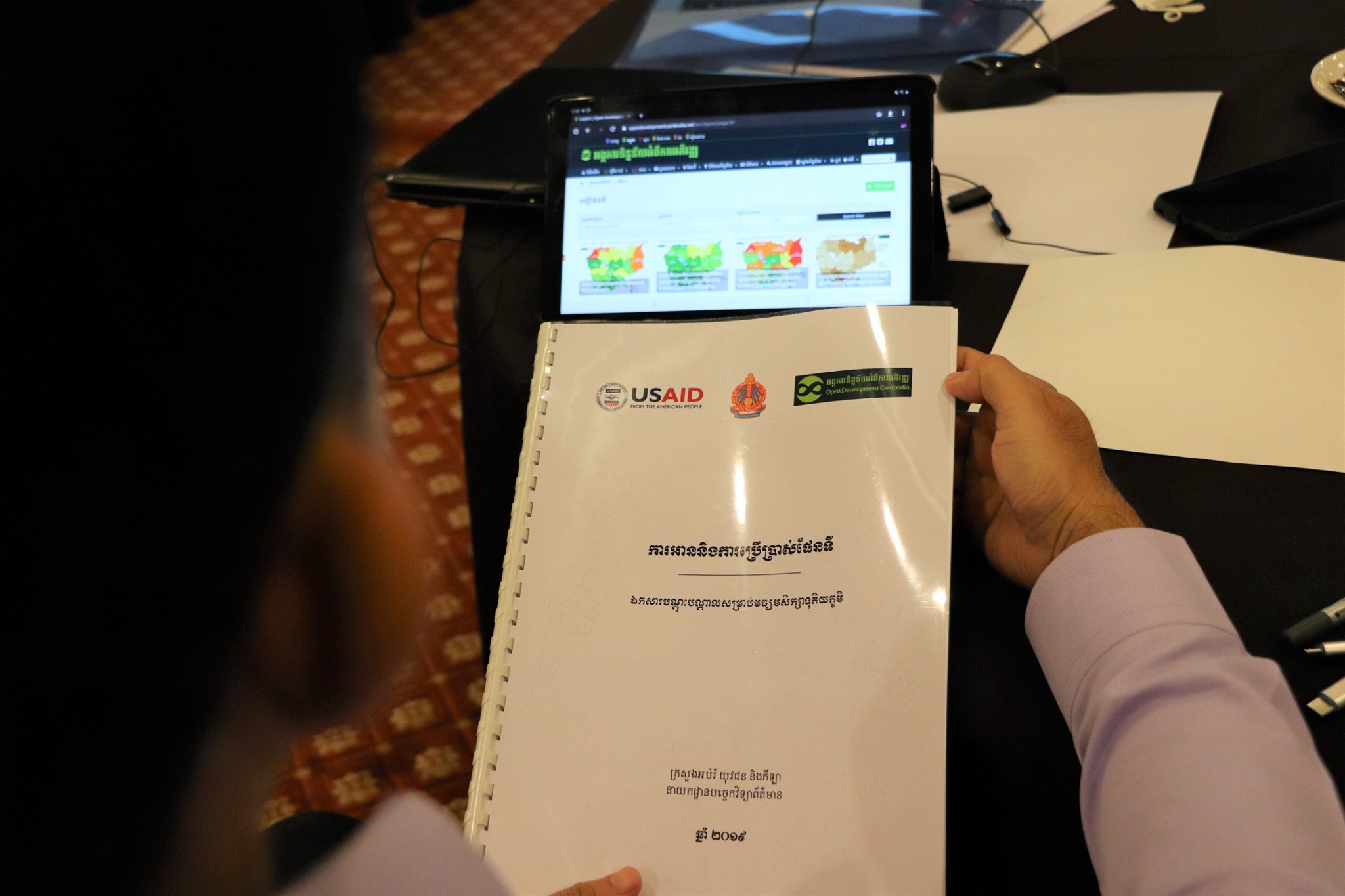ការប្រើប្រាស់ ICT និងផែនទីក្នុងការលើកកម្ពស់ការអប់រំ STEM ដល់វិទ្យាល័យរដ្ឋនៅកម្ពុជា
គម្រោងពង្រឹងសមត្ថភាពអង្គការសង្គមស៊ីវិលកម្ពុជា (CCSS) ដែលឧបត្ថម្ភថវិកាដោយទីភ្នាក់ងារសហរដ្ឋអាមេរិកសំរាប់ការអភិវឌ្ឍអន្តរជាតិ (USAID) តាមរយៈ វិទ្យាស្ថានគ្រប់គ្រងបូព៌ា-បស្ចឹម (EWMI)ត្រូវបានអនុវត្តដោយអង្គការទិន្នន័យអំពីការអភិវឌ្ឍ (ODC) ដោយសហការជាមួយនាយកដ្ឋានបច្ចេកវិទ្យាព័ត៌មាន (DIT) នៃក្រសួង អប់រំ យុវជន និងកីឡា។ គោលបំណងនៃកិច្ចសហការនេះគឺ ដើម្បីលើកកម្ពស់ការប្រើប្រាស់ឧបករណ៍ ICT និងដើម្បីកសាងសមត្ថភាពរបស់លោកគ្រូអ្នកគ្រូ និងសិស្សនៅអនុវិទ្យាល័យរដ្ឋលើមុខវិជ្ជាវិទ្យាសាស្ត្រ បច្ចេកវិទ្យា វិស្វកម្ម និងគណិតវិទ្យា (STEM)។

នៅក្នុងបរិបទបែបនេះ ការអានផែនទីត្រូវបានចាត់ទុកជាចំណុចស្នូលនៃការអនុវត្តគម្រោង CCSS ។ គម្រោងនេះបានបង្កើនជំនាញរបស់លោកគ្រូអ្នកគ្រូវនៅតាមវិទ្យាល័យតាមរយៈការពង្រឹងសមត្ថភាពក្នុងការប្រើប្រាស់ផែនទី Google ឬ Google Maps ប្រកបដោយប្រសិទ្ធភាពទន្ទឹមនឹងការជំរុញការប្រើប្រាស់បន្តទៀតនៅទូទាំងប្រព័ន្ធអប់រំ។ សូមចុច ទីនេះ ស្វែងយល់បន្ថែមអំពីកិច្ចសហប្រតិបត្តិការរវាង ODC និង ក្រសួងអប់រំ យុវជន និងកីឡា។
ODC បានបន្ដផលិតសៀវភៅអានផែនទីដែលមានទាំងជាឯកសារសម្រាប់បោះពុម្ព និងទម្រង់ឌីជីថលដើម្បីចែកចាយទៅសាលារៀនរដ្ឋដោយឥតគិតថ្លៃ។ ដើម្បីផលិតសៀវភៅបាន ក្រុមការងាររបស់យើងបានរៀបចំកម្មវិធីបណ្តុះបណ្តាលគ្រូជាច្រើនដែលផ្តោតលើការអប់រំនៅសាលារដ្ឋ ដើម្បីលើកកម្ពស់សមត្ថភាពគ្រូបណ្តុះបណ្តាលក្នុងការបញ្ជូនសារ និងចែករំលែកចំណេះដឹងប្រកបដោយប្រសិទ្ធភាព។ ការអនុវត្តគម្រោងមានរយៈពេល ៣ ឆ្នាំចាប់ផ្តើមនៅឆ្នាំ ២០១៧ ហើយវាត្រូវបានបញ្ចប់នាពេលថ្មីៗនេះបន្ទាប់ពីអនុវត្តដោយជោគជ័យនូវសកម្មភាពគម្រោងផ្សេងៗគ្នារួមមាន កិច្ចប្រជុំសិក្ខាសាលា និងវគ្គបណ្តុះបណ្តាលនៅតាមខេត្តមួយចំនួន។
សិក្ខាសាលាវាយតំលៃ
នៅថ្ងៃទី ៣០ ខែតុលាឆ្នាំ ២០១៨ ODC និងនាយកដ្ឋានបច្ចេកវិទ្យាព័ត៌មាន (DIT) បានរៀបចំកិច្ចប្រជុំមួយដើម្បីកំណត់ការវាយតំលៃជាបឋម ដើម្បីផលិតមេរៀនបណ្តុះបណ្តាលលើការអានផែនទីនិងការប្រមូលទិន្នន័យ។ លទ្ធផលនៃការប្រជុំកន្លះថ្ងៃរវាង ODC និងDIT បានបង្ហាញពីលក្ខណៈវិនិច្ឆ័យនៃកម្រងសំណួរសម្រាប់ការវាយតំលៃជាមុននៃការផលិតកម្មវិធីសិក្សា កំណត់កាលបរិច្ឆេទសមស្របបំផុត និងបានជ្រើសរើសយកសាលាគំរូដើម្បីដំណើរការវាយតំលៃជាមុនក្នុងចំណោមលោកគ្រូអ្នកគ្រូវិទ្យាល័យក៏ដូចជាសិស្សានុសិស្ស។
សិក្ខាសាលាស្តីពីការវាយតំលៃចំណេះដឹងនៃការអាននិងការប្រើប្រាស់ផែនទី ត្រូវបានធ្វើឡើងនៅថ្ងៃទី ៤-៥ ខែមីនា ឆ្នាំ ២០១៩ នៅសណ្ឋាគារអង្គរក្នុងខេត្តសៀមរាប។ សិក្ខាសាលានេះមានគោលបំណងស្វែងយល់អំពីកម្រិតដែលគ្រូគោលដៅអាចប្រើប្រាស់ និងយល់ដឹងអំពីផែនទី រួមទាំងឧបករណ៍ ICT។ ក្នុងពេលជាមួយគ្នានេះ សិក្ខាសាលានេះក៏ដើម្បីកំណត់ពីលក្ខខណ្ឌនៃការបង្រៀន និងការរៀនសូត្រ ក៏ដូចជាភាពអាចរកបាននៃសម្ភារៈនិងឧបករណ៍ដែលត្រូវការសម្រាប់មេរៀនការអានផែនទីនៅវិទ្យាល័យរៀងៗខ្លួន។ ព័ត៌មានបែបនេះបានអនុញ្ញាតឱ្យក្រុមការងារបច្ចេកទេសប្រមូលព័ត៌មានសំខាន់ៗដើម្បីជូនដំណឹងដល់ការរៀបចំកម្មវិធីសិក្សា។
តំណាង ៥ នាក់មកពី ODC និងអ្នកតំណាង ៥ រូបមកពី DIT បានចូលរួមក្នុងការរៀបចំនិងសម្របសម្រួលសិក្ខាសាលា។ នាយកសាលា ៦ រូបនិងលោកគ្រូអ្នកគ្រូ ១៨ នាក់ត្រូវបានអញ្ជើញឱ្យចូលរួមសិក្ខាសាលា ដើម្បីផ្តល់នូវធាតុចូលសម្រាប់ការរៀបចំមេរៀន។ វិទ្យាល័យចំនួន ៦ ដែលត្រូវបានអញ្ជើញ រួមទាំងសាលាជំនាន់ថ្មីនៃវិទ្យាល័យព្រះស៊ីសុវត្ថិ (ភ្នំពេញ) វិទ្យាល័យពាមជីកង (ខេត្តកំពង់ចាម), វិទ្យាល័យព្រះរាជបូជនីយកិច្ច (ខេត្តស្ទឹងត្រែង), វិទ្យាល័យនេតយ៉ង (ខេត្តបាត់ដំបង), វិទ្យាល័យ ជា ស៊ីម តាកែវ (ខេត្តតាកែវ) និងវិទ្យាល័យ ជា ស៊ីម ត្បែងមានជ័យ (ខេត្តព្រះវិហារ)។ សិក្ខាសាលាវាយតំលៃនេះមានអ្នកចូលរួមជាស្ត្រីចំនួន ៨នាក់។
ការបណ្តុះបណ្តាលសាកល្បង
ផ្អែកលើការយល់ដឹងដែលប្រមូលបាននៅឯសិក្ខាសាលាវាយតំលៃក្រុមការងារ ODC និង DIT បានបង្កើតជាឯកសារពង្រាងកម្មវិធីបណ្តុះបណ្តាលស្តីពីការអាន និងការប្រើប្រាស់ផែនទី។ នៅថ្ងៃទី ២៤ ២៥ និង ២៦ ខែមិថុនា ឆ្នាំ ២០១៩ ODC និងDITបានអនុវត្តការបណ្តុះបណ្តាលសាកល្បងលើការអាន និងការប្រើប្រាស់ផែនទីនៅខេត្តកំពង់ចាម។ គោលបំណងនៃការបណ្តុះបណ្តាលនេះគឺ ដើម្បីប្រមូលព័ត៌មានបន្ថែមពីលោកគ្រូអ្នកគ្រូសម្រាប់កម្មវិធីសិក្សា ក៏ដូចជាការផ្ដល់យោបល់ផ្សេងៗទៅលើសម្ភារៈបង្រៀនផ្សេងទៀតដែលនឹងត្រូវប្រើប្រាស់ដើម្បីបំពេញកម្មវិធីសិក្សា។ តំណាង ៤ នាក់មកពី ODC និងសមាជិក DIT ចំនួន ៧ នាក់ បានចូលរួមនៅក្នុងការរៀបចំនិងសម្របសម្រួលសិក្ខាសាលានេះ។ នាយកសាលាចំនួន ៦ នាក់ និងគ្រូ ១៩ នាក់ត្រូវបានអញ្ជើញក្នុងនោះមានស្រី ១១ នាក់។ វិទ្យាល័យដែលត្រូវបានគេអញ្ជើញចូលរួមមាន៖ សាលាចំណេះទូទៅថ្មីព្រះស៊ីសុវត្ថិនៅភ្នំពេញ ពាមជីកងនៅកំពង់ចាម ព្រះរាជបូជនីយកិច្ចនៅស្ទឹងត្រែង នេតយ៉ងនៅខេត្តបាត់ដំបង ជាស៊ីមតាកែវនៅតាកែវ និងជាស៊ីមត្បែងមានជ័យខេត្តព្រះវិហារ។
ការបណ្តុះបណ្តាលគ្រូ (ToT) លើការអាន និងការប្រើប្រាស់ផែនទី
នៅថ្ងៃទី ៥ និងទី ៦ ខែសីហា ឆ្នាំ ២០១៩ ODC និង DIT បានរៀបចំវគ្គបណ្តុះបណ្តាលគ្រូបង្គោល (ToT) លើការអាននិងប្រើប្រាស់ផែនទីនៅខេត្តកំពង់ឆ្នាំង។ គ្រូចំនួន ២៦ នាក់ (ក្នុងនោះស្រី ៣ នាក់) មកពីវិទ្យាល័យចំនួន ១៣ ផ្សេងៗគ្នានៅទូទាំង ១១ រាជធានី - ខេត្តក្នុងប្រទេសកម្ពុជាបានចូលរួមក្នុងកម្មវិធីបណ្តុះបណ្តាលនេះ។ វិទ្យាល័យទាំង ១៣ រួមមាន៖ សាលាជំនាន់ថ្មីស៊ីសុវត្ថិ (ភ្នំពេញ), ពាមជីកង (ខេត្តកំពង់ចាម), ព្រះរាជបូជនីយកិច្ច (ខេត្តស្ទឹងត្រែង), ជា ស៊ីម តាកែវ (ខេត្តតាកែវ), ជា ស៊ីមត្បែងមានជ័យ (ខេត្តព្រះវិហារ), នេត យ៉ាង (ខេត្តបាត់ដំបង), ស្វាយរៀង (ខេត្តស្វាយរៀង), ព្រះអង្គឌួង (ខេត្តព្រៃវែង), ហ៊ុន សែន កំពង់ពពិល (ខេត្តព្រៃវែង), ហ៊ុន សែន បល្ល័ង្ក (ខេត្តកំពង់ធំ), កំពង់ថ្ម (ខេត្តកំពង់ធំ), ហ៊ុន សែន ឈូក (ខេត្តកំពត), ព្រះរាជសម្ភារ (ខេត្តកំពត), ព្រែកលៀប (ភ្នំពេញ), ព្រែកអញ្ចាញ (ខេត្តកណ្ដាល), ហ៊ុន សែន កំពង់ចាម (ខេត្តកំពង់ចាម)។
ជាផ្នែកមួយនៃវគ្គបណ្តុះបណ្តាល មានគោលបំណងបំពាក់ដល់លោកគ្រូអ្នកគ្រូដែលចូលរួមនូវសមត្ថភាពក្នុងការប្រើប្រាស់ Google Maps, Google Earth, Google Street View ។ ទាំងអស់នេះមានឧបករណ៍វិចារណញាណនិងមានប្រយោជន៍ដែលអាចត្រូវបានប្រើដើម្បីស្វែងរក និងចែករំលែកទីតាំងជាមួយអ្នកប្រើប្រាស់ផ្សេងទៀត។
ODC និង DIT បានធ្វើការយ៉ាងស្វិតស្វាញក្នុងការផលិតសៀវភៅការអានផែនទីផ្លូវការដំបូងគេជាភាសាខ្មែរសម្រាប់ការអប់រំទូទៅជាពិសេសសម្រាប់សិស្សអនុវិទ្យាល័យ និងវិទ្យាល័យ។ សៀវភៅនេះមានជំពូកដប់ប្រាំពីរណែនាំអំពីចំណេះដឹងជាច្រើនរាប់ចាប់ពីមូលដ្ឋានគ្រឹះនៃការអានផែនទីរហូតដល់មុខងារនៃឧបករណ៍បច្ចេកវិទ្យាដូចជាផែនទី Google Maps និងផ្សេងទៀត។
ការអាន និងការប្រើប្រាស់ផែនទីសៀវភៅផែនទី
នៅខែតុលាឆ្នាំ ២០២០ សៀវភៅណែនាំអំពីការប្រើប្រាស់ និងការអានផែនទី ត្រូវបានបញ្ចប់និងទទួលស្គាល់ដោយក្រសួងអប់រំ យុវជន និងកីឡា ដើម្បីផ្សព្វផ្សាយនិងប្រើប្រាស់នៅអនុវិទ្យាល័យ។ នៅថ្ងៃទី ១២-១៣ ខែតុលា ឆ្នាំ ២០២០ ODC បានសហការណ៍ជាមួយ DIT រៀបចំវគ្គបណ្តុះបណ្តាលគ្រូបង្គោលលើការអាន និងការប្រើប្រាស់ផែនទីនៅខេត្តសៀមរាប។ វគ្គបណ្តុះបណ្តាលនេះមានគោលបំណងពង្រីកសមត្ថភាពគ្រូវិទ្យាល័យក្នុងការអាន និងប្រើប្រាស់ផែនទីឌីជីថលដោយប្រើស្មាតហ្វូន (smartphone) ឬកុំព្យូទ័រ។ ការបណ្តុះបណ្តាលដ៏សំខាន់នេះត្រូវបានចូលរួមដោយគ្រូវិទ្យាល័យចំនួន ៣០ នាក់ ដែល ១០ ភាគរយជាអ្នកគ្រូ។
លើសពីនេះ ODC និង DIT ក៏បានផលិតជាវីដេអូបង្រៀនជាច្រើនភាគ ដើម្បីគាំទ្រដល់ការបង្រៀនមេរៀននៃការអានផែនទីផងដែរ។ វីដេអូទាំងនោះបង្ហាញពីការប្រើប្រាស់ជាក់ស្តែងអំពីរបៀបដែលយើងអាចប្រើផែនទី Google ក្នុងជីវិតប្រចាំថ្ងៃរបស់យើង។ ចាប់ផ្តើមពីជំហានដំបូងរហូតដល់ជំហានចុងក្រោយ ការបង្កើតនិងចុះឈ្មោះគណនី ស្វែងរកនិងរុករកទីតាំងដែលអ្នកចង់បានភ្ជាប់ និងការកំណត់ទីតាំងថ្មី របៀបរក្សាទុកនិងចំណាំសម្រាប់ការប្រើប្រាស់នាពេលអនាគត ការតាមដានផ្ទាល់និងទិសដៅនិងការចែករំលែកផែនទីនៅលើកុំព្យូទ័រនិងទូរស័ព្ទ។
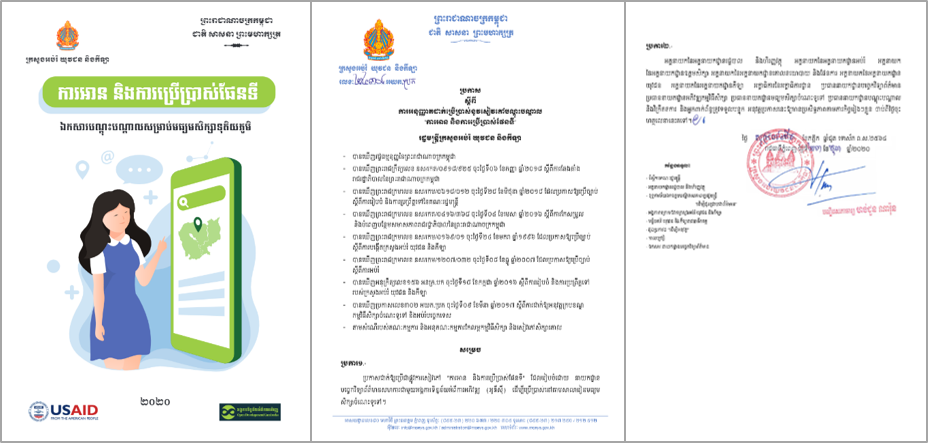
ODC និង DIT បានធ្វើឱ្យដាក់សម្ភារៈទាំងអស់នេះនៅលើបណ្តាញអ៊ីនធឺណិតដើម្បីប្រើប្រាស់ដោយឥតគិតថ្លៃផងដែរ។ លោកអ្នកអាចស្វែងយល់បន្ថែមអំពីសៀវភៅអានផែនទីនៅលើឃ្លាំងទិន្នន័យរបស់យើង ព្រមទាំងអាចស្វែងរកវីដេអូការអានផែនទីជាច្រើនទាំងនៅលើ YouTube របស់ ODC និង DIT តាមរយៈបណ្តាញភ្ជាប់ខាងក្រោម៖
- បណ្តុំវីដេអូសម្រាប់សាធារណៈជន៖ https://bit.ly/3pityu7
- បណ្តុំវីដេអូសម្រាប់សិស្សានុសិស្ស៖ https://bit.ly/2SWQUt0
- បណ្តុំវីដេអូនៃការបង្រៀននៅលើកុំព្យូទ័រ៖ https://bit.ly/3vZFu6c
- បណ្តុំវីដេអូនៃការបង្រៀននៅលើទូរស័ព្ទដៃ៖ https://bit.ly/3f3LUdm
ODC ក៏បានបង្កើតល័ក្ខខ័ណ្ឌយោងសម្រាប់ក្រុមការងារបច្ចេកទេស ODC និង DIT ដើម្បីឲ្យយើងដឹងអំពីមនុស្សដែលពាក់ព័ន្ធនឹងគម្រោងនិងទំនួលខុសត្រូវរៀងៗខ្លួន។ យើងក៏បានពិនិត្យមើលផងដែរអំពីវិធីដែលយើងអាចជួយ DIT បង្កើតគោលការណ៍ណែនាំវិចារណកថាដែលមានលក្ខណៈស្តង់ដារសម្រាប់គេហទំព័រប្រព័ន្ធអប់រំបើកចំហរ (OER) ។ ទាក់ទងនឹងគោលការណ៍ណែនាំវិចារណកថាដែល DIT បានចែករំលែកសំភារៈមួយចំនួនរួមមាន បទបង្ហាញស្លាយអំពីការណែនាំបណ្តាញសង្គម និងការប្រើប្រាស់ប្រកបដោយប្រសិទ្ធភាព។
កិច្ចប្រជុំបណ្តាញ ICT4E
ក្រសួងអប់រំ យុវជន និងកីឡា (MoEYS) បានសហការជាមួយ ODC និងបណ្តាញ ICTសម្រាប់ការអភិវឌ្ឍនៅកម្ពុជា (ICT4D) ដើម្បីរៀបចំការប្រជុំប្រចាំត្រីមាសជាមួយអង្គការក្រៅរដ្ឋាភិបាល សង្គមស៊ីវិល និងវិស័យឯកជន/ក្រុមហ៊ុនដែលបច្ចុប្បន្នកំពុងធ្វើការក្នុងវិស័យបច្ចេកវិទ្យាព័ត៌មានវិទ្យាក្នុងវិស័យអប់រំនៅកម្ពុជា។ កិច្ចប្រជុំ ICT4E ទាំងនេះមានគោលបំណងដើម្បីធ្វើបច្ចុប្បន្នភាពស្ថានភាពនៃការប្រើប្រាស់បច្ចេកវិទ្យាព័ត៌មានវិទ្យាក្នុងវិស័យអប់រំ ពង្រឹងកិច្ចសហប្រតិបត្តិការក្នុងចំណោមអ្នកពាក់ព័ន្ធនានា ចែករំលែកបទពិសោធន៍ជាក់ស្តែងក្នុងការអនុវត្តគម្រោង និងផ្តល់ឱកាសសម្រាប់កិច្ចសហប្រតិបត្តិការបន្ថែមទៀត។

